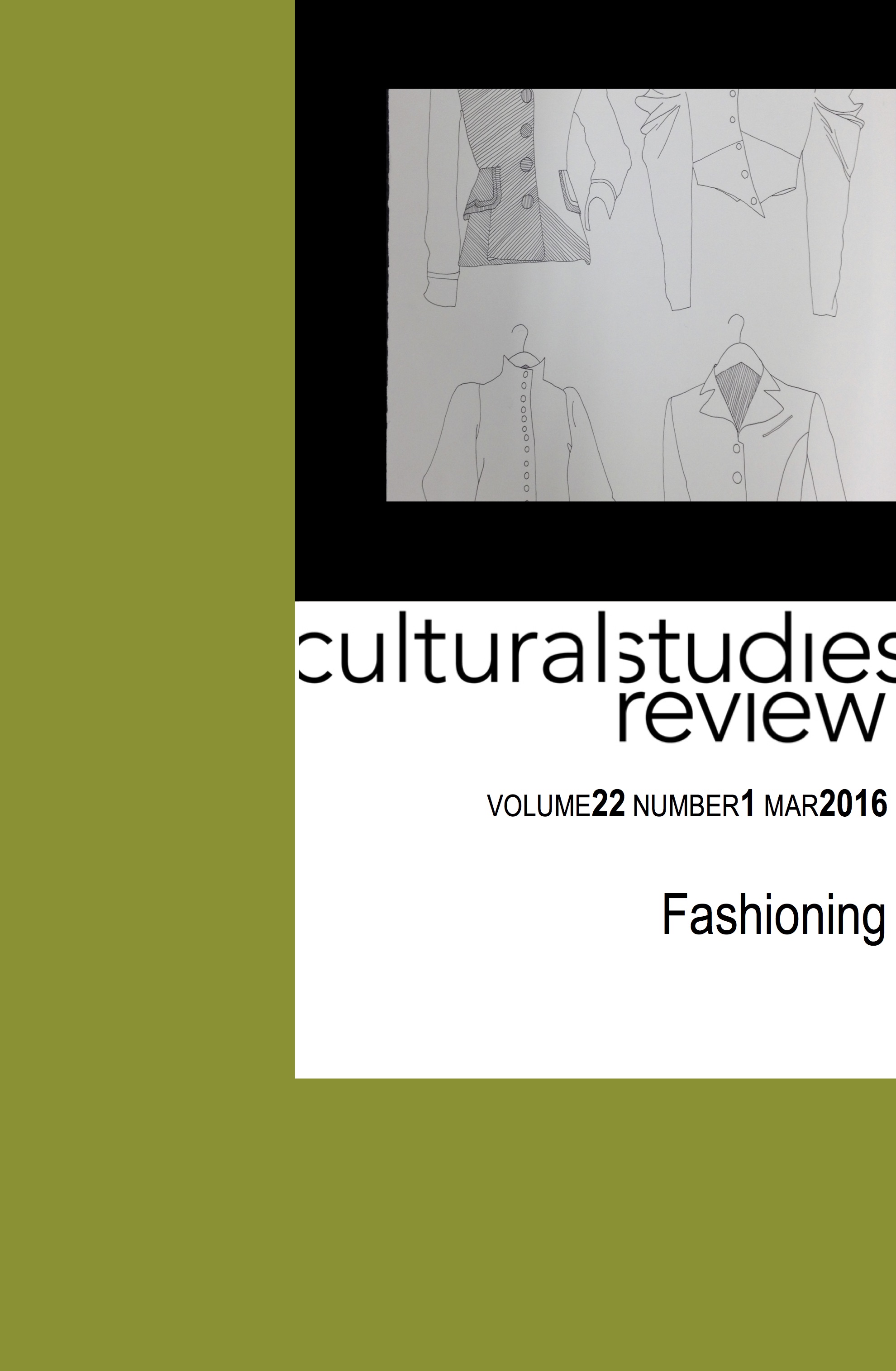Reflexive Dressing: Rethinking Retro
Main Article Content
Abstract
This article undertakes a philosophical exploration of the act we know, or think we know, as ‘dressing’. Inhabiting, in thought, the moment in which we dress, I examine some of its constituent mechanisms, attending to the impulses by which dressing is generated out of subjective experience. When those impulses are temporally marked, as they are in the case of retro dress, this generation is a two-pronged process, in which the holding of the body in time, and the holding of time in the body, recalibrate one another. The process of ‘dressing,’ in this understanding, has a reflexivity which is double; it entails the turning of the body, with dress as medium, towards itself, and the turning of present experience towards some felt notion of the past. Reflexively dressing, we are always becoming ourselves, and becoming other than ourselves, at once; a movement of circuitous internalisation and externalisation by which the ambiguation inherent in material experience is realised.
Article Details
Section
Authors who publish with this journal agree to the following terms:
a) Authors retain copyright and grant the journal right of first publication with the work simultaneously licensed undera Creative Commons Attribution License that allows others to share and adapt the work with an acknowledgement of the work's authorship and initial publication in this journal.
b) Authors are able to enter into separate, additional contractual arrangements for the non-exclusive distribution of the journal's published version of the work (e.g., post it to an institutional repository or publish it in a book), with an acknowledgement of its initial publication in this journal.
c) Authors are permitted and encouraged to post their work online (e.g., in institutional repositories or on their website) prior to and during the submission process, as it can lead to productive exchanges, as well as earlier and greater citation of published work (See The Open Access Citation Advantage Service). Where authors include such a work in an institutional repository or on their website (ie. a copy of a work which has been published in a UTS ePRESS journal, or a pre-print or post-print version of that work), we request that they include a statement that acknowledges the UTS ePRESS publication including the name of the journal, the volume number and a web-link to the journal item.
d) Authors should be aware that the Creative Commons Attribution (CC-BY) License permits readers to share (copy and redistribute the work in any medium or format) and adapt (remix, transform, and build upon the work) for any purpose, even commercially, provided they also give appropriate credit to the work, provide a link to the license, and indicate if changes were made. They may do these things in any reasonable manner, but not in any way that suggests you or your publisher endorses their use.
